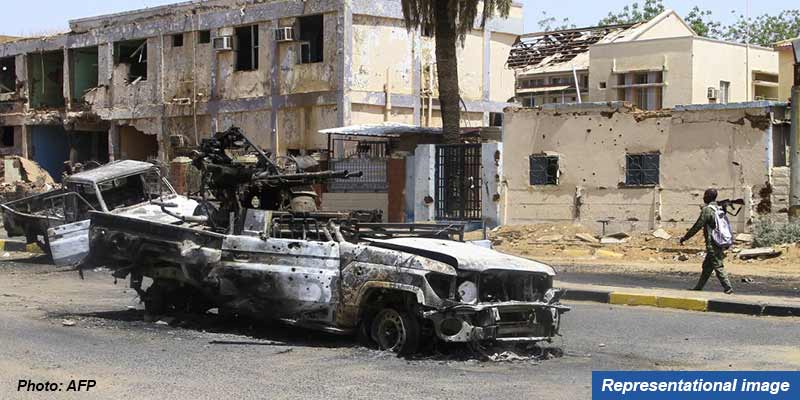- World
- Oct 30
Hundreds killed in massacre in Sudan’s El Fasher
• The World Health Organisation (WHO) condemned the reported killing of more than 460 patients and their companions, as well as the abduction of six health workers from the Saudi Maternity Hospital in Sudan’s El Fasher on October 28.
• The UN has called for an immediate ceasefire in El Fasher, the capital of Sudan’s North Darfur region, amid reports of significant civilian deaths, attacks on hospitals and the city’s reported capture by the Rapid Support Forces (RSF).
• El Fasher, the last major city in Darfur still under government control, has been under siege for more than a year.
• According to media reports, the RSF — a paramilitary group that has been waging a brutal war against its former allies, the Sudanese Armed Forces (SAF) — has claimed to have taken control of the city after seizing the army’s Sixth Division headquarters.
• On October 26, Saudi Maternity Hospital, the only partially functioning hospital in El Fasher, was attacked for the fourth time in a month, killing one nurse and injuring three other health workers.
• On October 28, six health workers, four doctors, a nurse and a pharmacist, were abducted. On the same day, more than 460 patients and their companions were reportedly shot and killed in the hospital.
• WHO condemned these horrific attacks on healthcare in the strongest terms and called for the respect of the sanctity of health care as mandated under International Humanitarian Law.
• El Fasher has been cut off from humanitarian aid since February 2025.
• More than 260,000 people remain trapped in El Fasher with almost no access to food, clean water, or medical care.
• Escalating violence has forced about 28,000 people to flee El Fasher Town in recent days, 26,000 of them to rural areas of El Fasher and up to 2,000 to Tawila.
• Over 100,000 more people are expected to move to Tawila in the coming days and weeks, adding to the 575,000 already displaced from El Fasher who are sheltering there and other areas.
• Many of the displaced are women and unaccompanied children facing acute shortages of shelter, protection, food, water, and health care.
• The Sudan conflict has created one of the world’s worst humanitarian crises, displacing more than 11.7 million people, including 4.2 million who have fled as refugees to neighbouring countries, according to the UN figures.

